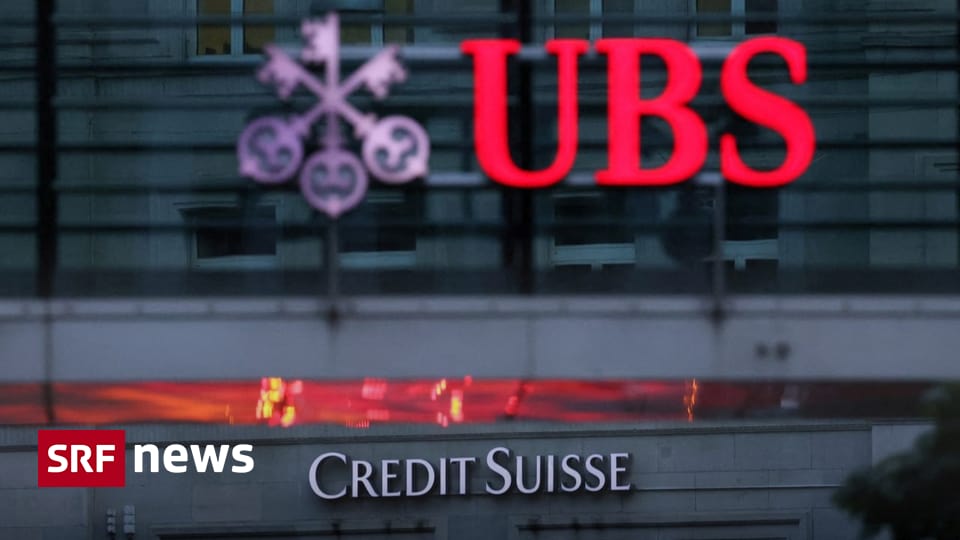The Federal Council report on bank stability includes 22 measures on how systemically important banks should remain stable. Economic historian Tobias Straumann from the University of Zurich rates the report as good, but misses one measure.
Tobias Straumann
historian
Open the people box. Close the people box
Tobias Straumann is Professor of Economic History at the University of Zurich. His areas of expertise include Swiss economic history and politics as well as European monetary and financial history.
SRF: What is the report on banking stability worth?
Tobias Straumann: It’s just a declaration of intent and still a bit vague. It is positive that the scope of the problem has been recognized and is being addressed. It is not satisfactory to build on the existing regulations, tighten them a little and hope that that is enough.
How do you assess the proposed measures?
It is positive that the financial market supervisory authority Finma is getting more tools. In this way, the responsibility of the managers and board members responsible for a bankruptcy can be defined much broader. The authorities can also reclaim previous bonuses. This can be important in a financial crisis.
There should be no fines for individual managers in the future either. A missed opportunity?
For symbolic reasons, buses would certainly not be bad, but buses are not crucial. Top managers often have insurance for this or the company pays the fine.
It would be ideal if Switzerland required large banks like UBS to have at least 10 percent equity capital.
Although the Federal Council is proposing higher capital regulations, it has not commented on this specifically. A failure?
It would be ideal if Switzerland required large banks like UBS to have at least 10 percent equity capital. Today it is 5 percent. However, such an increase is very difficult because of international regulation and international competition. This is probably too risky for politicians, they are afraid that UBS could move away.
Sooner or later there will most likely be a banking crisis.
Can the proposed measures prevent a next banking crisis?
No. Sooner or later there will most likely be a banking crisis. There can then be a severe panic, in the digital age anyway. I am skeptical that the report and these measures can prevent state intervention and emergency law from occurring again.
So what to do?
The supervisory authority and the state must intervene much more decisively in a crisis. For example, by immediately stopping the outflow of liquidity, i.e. simply prohibiting any further withdrawal of money from the bank. I would be in favor of a rigorous financial fire brigade.
Can no longer withdraw money. What’s the point?
You gain time. That was the problem with the CS, the outflows accelerated significantly. When they really get going, it is difficult to stop them by simply replacing liquidity from the National Bank. The ban on withdrawing money has been used repeatedly internationally and historically. The last time was in Greece in 2015 – without the measure, Greece would have fallen out of the euro.
Have we learned anything from the previous crises?
Yes, the right lessons were certainly learned from the 2008/09 financial crisis with UBS. The problem is simply that that’s not enough. The financial system is so complex and prone to disruption that it is impossible to prevent the state from having to play an important role in the financial crisis. I simply don’t believe that you can find an elegant solution to winding up a major bank without the state having to provide guarantees again. My conclusion: The state will probably play a role again next time.
The interview was conducted by Benita Vogel.
